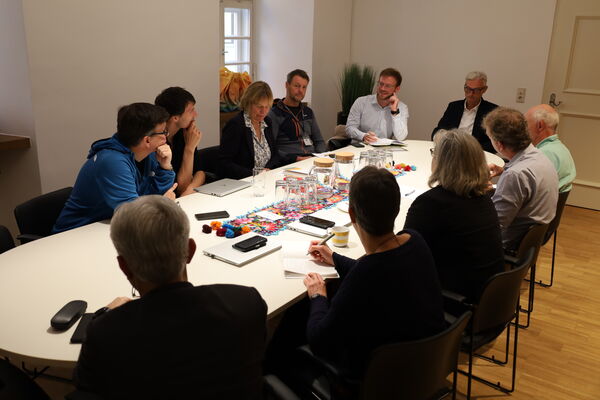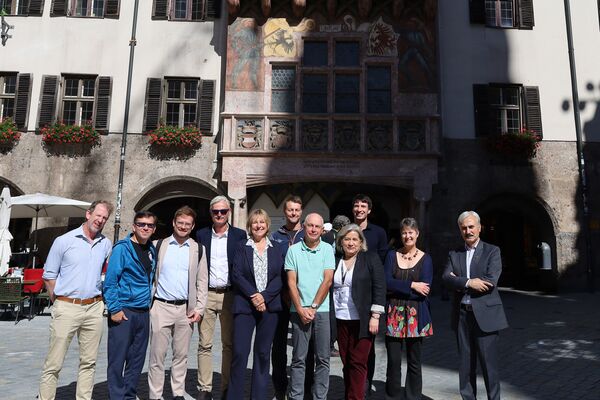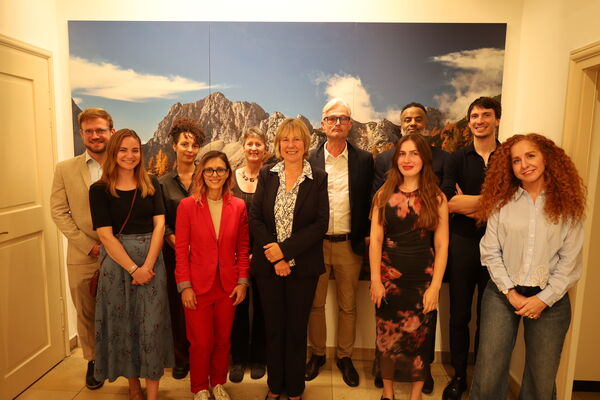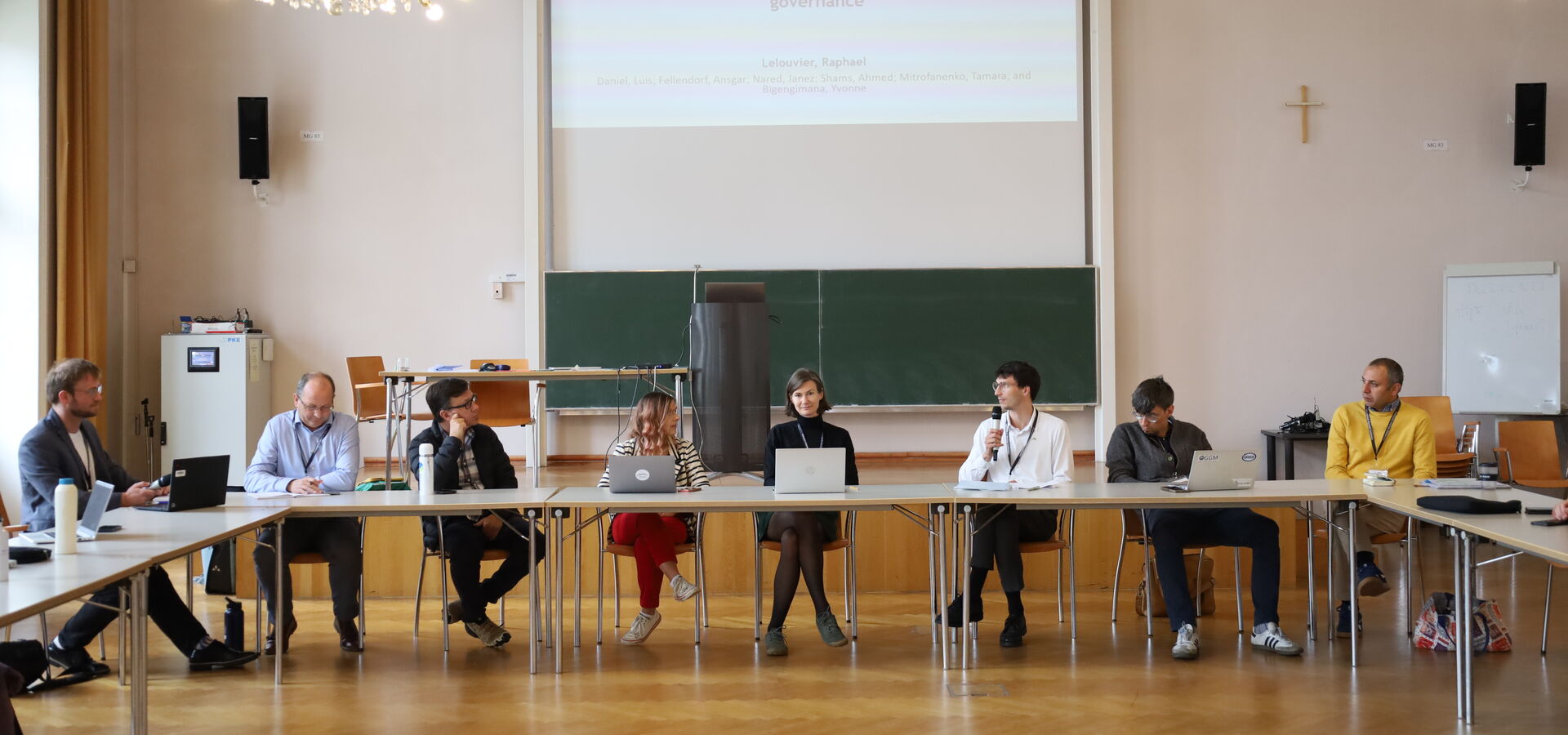How can we address the challenges facing mountains around the world? What frameworks exist to facilitate the exchange of best practices? These and other questions were the focus of a session led by the Alpine Convention at the International Mountain Conference in Innsbruck (Austria) on 17 September.
Bringing together voices from various mountain regions and international organisations around the world, the workshop addressed the interface between science and policy in regional mountain governance.
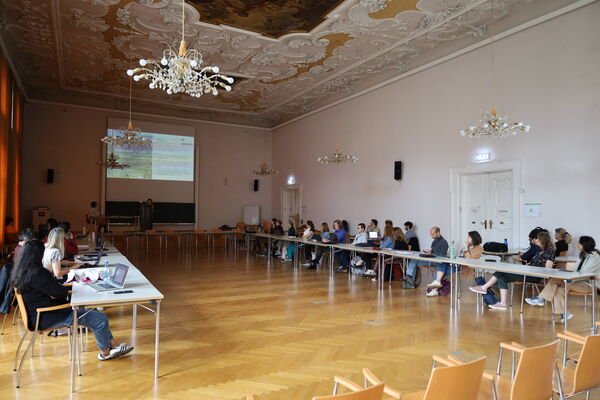
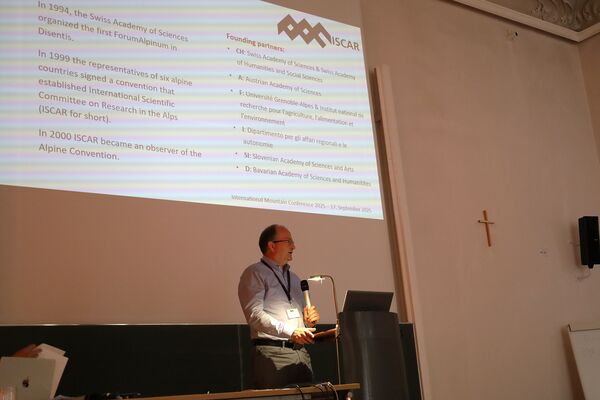
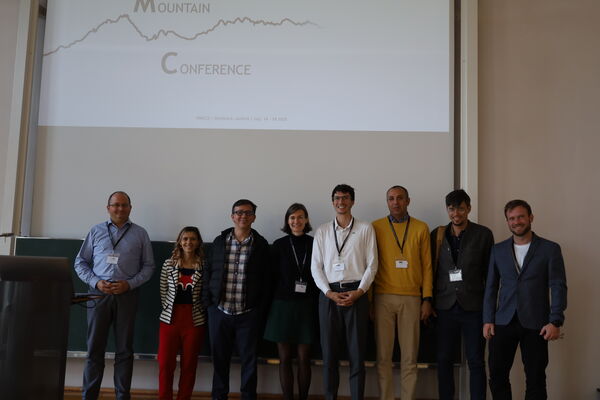
Nine presentations focused on the role of science and research in helping us understand the complex interactions of environmental impacts in mountain ecosystems, informing decision-making, and exchanging best practices. Insights came from speakers representing both the research and governance sides, and covering many of our planet’s largest mountain chains:
- UNEP - Secretariat of the Carpathian Convention: Science-policy collaborations in the framework of the Carpathian Convention
- Andean Mountain Initiative: Knowledge management and science-policy dialog for effective mountain governance
- CIPRA International: Mapping governance for Alpine biodiversity
- UNEP - Caucasus Network for Sustainable Development of Mountain Regions: 2nd Edition of the Caucasus Environment Outlook
- ISCAR: ISCAR and its role in the Alpine governance system
- Alpine Convention: The science-policy interface in the Alpine Convention’s framework convention, protocols, and recent processes
- Mountain Research Initiative: Spatialising international and multilateral environmental agreements across the world’s mountains
- University of Graz: From donor- to regional science driven policy – experiences from a bottom-up approach in High Mountain Asia
- ARCOS Network: Integrating science and policy: Lessons from ARCOS’ work in African mountains (online presentation)
The second half of the workshop consisted of an open discussion on the current and future role of science in regional governance processes and to understand the research needs of decision-makers. It also explored the benefits of inter-regional exchange. The panellists highlighted various regional and international perspectives, but one of the common threads was the importance of up-to-date information and scientific knowledge for effective decision-making. The need for strong monitoring as well as collaboration between decision-makers and science was also mentioned by several of the speakers.
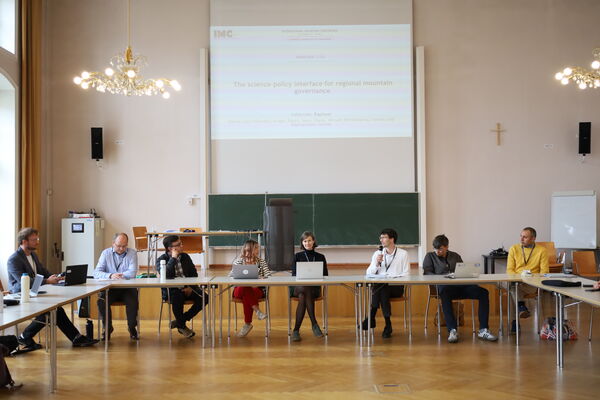
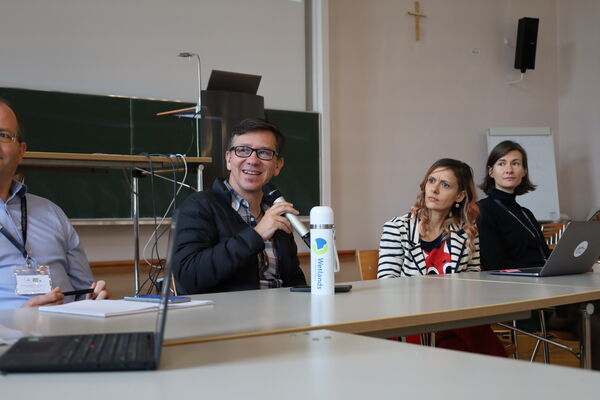
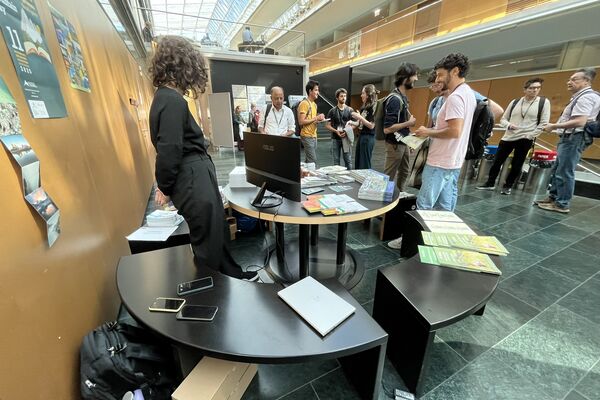
The Alpine Convention also took advantage of the networking opportunities offered by the conference, showcasing various publications and promotional materials at a stand in the main venue. It was a pleasure to exchange with so many people from the mountain research community around the world!
In addition to the rich programme of the International Mountain Conference (14-18 September), the presence of many of the Alpine Convention’s international partners and representatives of other mountain regions provided rare opportunities for bilateral meetings around Innsbruck and at the offices of the Alpine Convention’s Permanent Secretariat. On top of the many co-conveners and speakers of the workshop session, these included the FAO Mountain Partnership Secretariat, the University of the Free State (South Africa), GLOMOS, and the Global Mountain Biodiversity Assessment. These exchanges offered the opportunity to discuss recent developments in the global mountain community and to strengthen the already close cooperation between mountain regions globally, reaffirming their common voice on the global stage.
